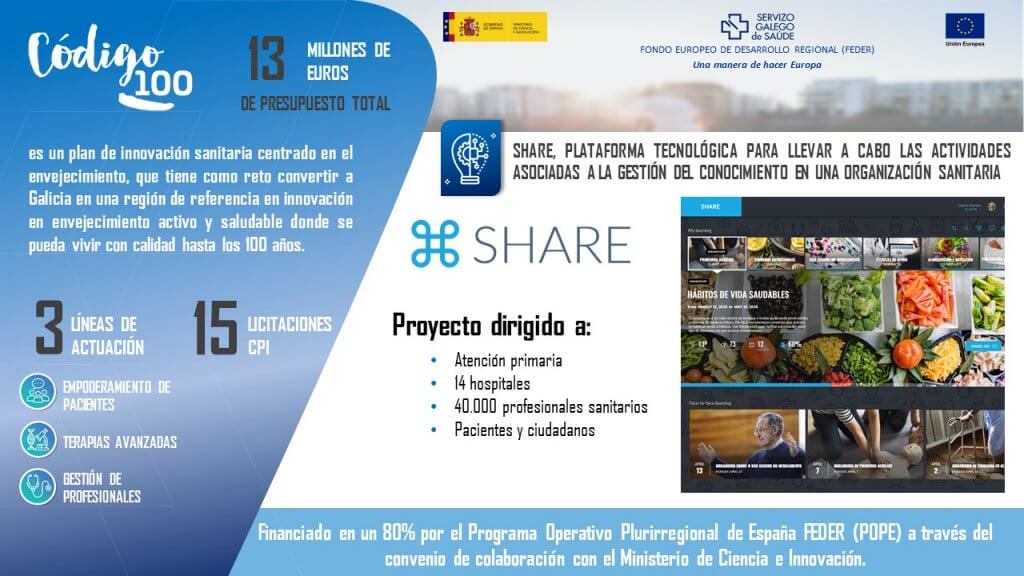Netex has been awarded a major contract to develop a knowledge management system for healthcare as part of a collaboration agreement between the Galician Healthcare System (Sergas) and the Spanish Ministry of Economy, Industry and Competitiveness. The contract forms part of the activities specified within the Health Innovation Plan, Code 100, financed through community funding with Regional Development Funds (ERDF), within the Smart Growth Operational Program 2014-2020 (SGOP). The Sergas contract is a major project for Netex and is worth around 955,000 euros. It was awarded via the Public Procurement of Innovative Solutions (PPI) framework.
The Netex project means they will develop a comprehensive health knowledge management system (to be known as SHARE) in Sergas. The system will be responsible for training more than 34,000 professionals, as well as communicating with the patients and family members. It will also integrate closely with the pharmaceutical industry and scientific publishers, something seen as essential to transform and modernise the local health sector.

Netex has been commissioned to provide an innovative project that will provide agile and efficient management of human resources and talent throughout the highly complex Galician Healthcare System. SHARE will comprehensively cover the competencies, job life cycle and commitment of the professionals. It will also create the next generation talent and knowledge map, define learning itineraries, and the enable digital content to be created. As part of the contract, it will integrate tightly with existing applications including the digital medical records of patients and medical imaging tests. The SHARE implementation process is expected to be completed in November 2019.
The new project reinforces Netex’s strategy in the development and implementation of its products and will help sustain the expected company growth in the coming years.
Netex expects the platform will generate further business in the health sector internationally, such as public health services, private hospitals networks, scientific research communities and the pharmaceutical industry.
